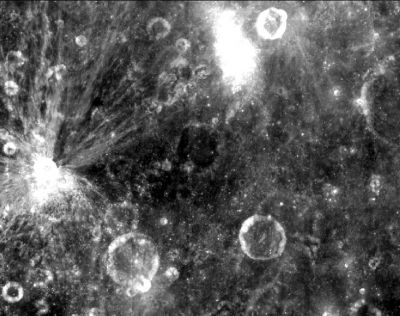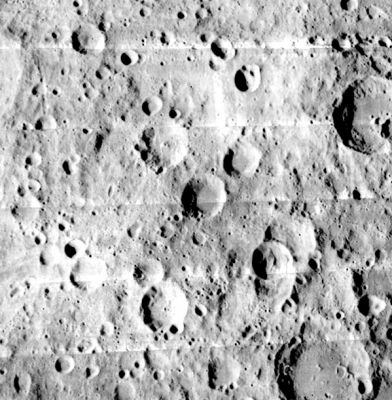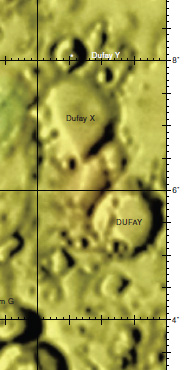Difference between revisions of "Dufay"
(Created page with "<div id="content_view" class="wiki" style="display: block"> =Dufay= {| class="wiki_table" | Lat: 5.5°N, Long: 169.5°E, Diam: 39 km, Depth: km, Rükl: ''(farside)''<br />...") |
|||
| (2 intermediate revisions by the same user not shown) | |||
| Line 5: | Line 5: | ||
|- | |- | ||
| | | | ||
| − | [http://lpod.org/coppermine/displayimage.php?pid=4447&fullsize=1 [[Image: | + | [http://lpod.org/coppermine/displayimage.php?pid=4447&fullsize=1 [[Image:Normal_dufay-large.jpg|external image normal_dufay-large.jpg]]]<br /> |
| | | | ||
| − | [http://lpod.org/coppermine/displayimage.php?pid=4448&fullsize=1 [[Image: | + | [http://lpod.org/coppermine/displayimage.php?pid=4448&fullsize=1 [[Image:Normal_dufay-orbiter-large.jpg|external image normal_dufay-orbiter-large.jpg]]]<br /> |
| | | | ||
| − | [[Image: | + | [[Image:Dufay-color.jpg|dufay-color.jpg]]<br /> |
|} | |} | ||
| − | '''Left:''' [http://www.mapaplanet.org/explorer-bin/explorer.cgi?map=Moon&layers=moon_clementine_base_v2&info=NO&advoption=NO&sizeSelector=imageSize&lines=700&samples=1412&Resolution=45.3955901426719&r=1&g=1&b=1&projection=SIMP&grid=none&stretch=auto&north=1.16&south=8.87&west=161.38&east=176.93¢er_lat=0¢er=169.155&defaultcenter=on Clementine] image from [http://www.mapaplanet.org Map-A-Planet] (Dufay is the dark-looking crater at centre of image). '''Middle:''' [http://www.lpi.usra.edu/resources/lunarorbiter/images/preview/2034_med.jpg Lunar Orbiter 2034] image from the [http://www.lpi.usra.edu Lunar & Planetary Institute].'''Right:''' [http://planetarynames.wr.usgs.gov/images/Lunar/lac_67.pdf Color-coded topography LAC 67] image from [ | + | '''Left:''' [http://www.mapaplanet.org/explorer-bin/explorer.cgi?map=Moon&layers=moon_clementine_base_v2&info=NO&advoption=NO&sizeSelector=imageSize&lines=700&samples=1412&Resolution=45.3955901426719&r=1&g=1&b=1&projection=SIMP&grid=none&stretch=auto&north=1.16&south=8.87&west=161.38&east=176.93¢er_lat=0¢er=169.155&defaultcenter=on Clementine] image from [http://www.mapaplanet.org Map-A-Planet] (Dufay is the dark-looking crater at centre of image). '''Middle:''' [http://www.lpi.usra.edu/resources/lunarorbiter/images/preview/2034_med.jpg Lunar Orbiter 2034] image from the [http://www.lpi.usra.edu Lunar & Planetary Institute].'''Right:''' [http://planetarynames.wr.usgs.gov/images/Lunar/lac_67.pdf Color-coded topography LAC 67] image from [[USGS%20Digital%20Atlas|USGS Digital Atlas]].<div id="toc"> |
| − | + | <br /> <br /> | |
| − | |||
==Images== | ==Images== | ||
[http://www.lpod.org/coppermine/thumbnails.php?album=search&type=full&search=Dufay LPOD Photo Gallery] [http://www.lpi.usra.edu/resources/lunar_orbiter/bin/srch_nam.shtml?Dufay%7C0 Lunar Orbiter Images] [http://www.lpi.usra.edu/resources/apollo/search/feature/?feature=Dufay Apollo Images]<br /> | [http://www.lpod.org/coppermine/thumbnails.php?album=search&type=full&search=Dufay LPOD Photo Gallery] [http://www.lpi.usra.edu/resources/lunar_orbiter/bin/srch_nam.shtml?Dufay%7C0 Lunar Orbiter Images] [http://www.lpi.usra.edu/resources/apollo/search/feature/?feature=Dufay Apollo Images]<br /> | ||
| Line 21: | Line 20: | ||
<br /> | <br /> | ||
==Maps== | ==Maps== | ||
| − | ''([ | + | ''([[LAC%20zone|LAC zone]] 67C2)'' [http://planetarynames.wr.usgs.gov/images/Lunar/lac_67.pdf USGS Digital Atlas PDF]<br /> <br /> |
==Description== | ==Description== | ||
<br /> | <br /> | ||
| Line 30: | Line 29: | ||
==Additional Information== | ==Additional Information== | ||
| − | * Neat elongated depression to the west-northwest of '''Dufay''' (between '''Dufay''' and '''Mandel'shtam'''); at 6°10' North/ 167°10' East (see page 135 in the Revised Edition of the ''Clementine Atlas of the Moon'', Cambridge 2012). <span class="membersnap">- | + | * Neat elongated depression to the west-northwest of '''Dufay''' (between '''Dufay''' and '''Mandel'shtam'''); at 6°10' North/ 167°10' East (see page 135 in the Revised Edition of the ''Clementine Atlas of the Moon'', Cambridge 2012). <span class="membersnap">- DannyCaes <small>Feb 9, 2014</small></span> |
| − | * Apollo 16's orbital panoramic ''ITEK''-camera frames [http://www.lpi.usra.edu/resources/apollo/frame/?AS16-P-4127 AS16-P-4127] and [http://www.lpi.usra.edu/resources/apollo/frame/?AS16-P-4132 4132] show close-ups of the elongated depression west-northwest of '''Dufay'''.<span class="membersnap">- | + | * Apollo 16's orbital panoramic ''ITEK''-camera frames [http://www.lpi.usra.edu/resources/apollo/frame/?AS16-P-4127 AS16-P-4127] and [http://www.lpi.usra.edu/resources/apollo/frame/?AS16-P-4132 4132] show close-ups of the elongated depression west-northwest of '''Dufay'''.<span class="membersnap">- DannyCaes <small>Feb 9, 2014</small></span> |
<br /> | <br /> | ||
==Nomenclature== | ==Nomenclature== | ||
* [http://en.wikipedia.org/wiki/Jean_Dufay Jean Claude Barthélemy Dufay] (July 18, 1896 - November 6, 1967) was a French astronomer. During his career he studied nebulae, interstellar matter, the night sky and cometary physics. In 1925, while working in collaboration with Jean Cabannes, he computed the altitude of the Earth's ozone layer. | * [http://en.wikipedia.org/wiki/Jean_Dufay Jean Claude Barthélemy Dufay] (July 18, 1896 - November 6, 1967) was a French astronomer. During his career he studied nebulae, interstellar matter, the night sky and cometary physics. In 1925, while working in collaboration with Jean Cabannes, he computed the altitude of the Earth's ozone layer. | ||
| − | * Perhaps also interesting to know: the [http://en.wikipedia.org/wiki/Dufaycolor Dufaycolor] process for photography and film, invented by Louis Dufay in 1908.<span class="membersnap">- | + | * Perhaps also interesting to know: the [http://en.wikipedia.org/wiki/Dufaycolor Dufaycolor] process for photography and film, invented by Louis Dufay in 1908.<span class="membersnap">- DannyCaes <small>Feb 9, 2014</small></span> |
| − | * The name '''Dufay''' is also mentioned (although briefly) on page 184 of V.A.Firsoff's book ''The Old Moon and the New'' (Sidgwick & Jackson, 1969) in the chapter ''Seeing is Believing'', about lunar observations performed through color filters.<span class="membersnap">- | + | * The name '''Dufay''' is also mentioned (although briefly) on page 184 of V.A.Firsoff's book ''The Old Moon and the New'' (Sidgwick & Jackson, 1969) in the chapter ''Seeing is Believing'', about lunar observations performed through color filters.<span class="membersnap">- DannyCaes <small>Feb 9, 2014</small></span> |
<br /> | <br /> | ||
==LPOD Articles== | ==LPOD Articles== | ||
| Line 44: | Line 43: | ||
<br /> <br /> | <br /> <br /> | ||
---- | ---- | ||
| − | + | </div> | |
Latest revision as of 01:47, 16 April 2018
Contents
Dufay
| Lat: 5.5°N, Long: 169.5°E, Diam: 39 km, Depth: km, Rükl: (farside) | ||
Images
LPOD Photo Gallery Lunar Orbiter Images Apollo Images
- AS16-113-18294 shows Apollo 16's CSM Casper above Dufay B' (near the upper right corner) and Valier (lower left corner). The dark "triangle" in the upper right corner is the silhouette of LM Orions window-margin. Source: Kipp Teague's Project Apollo Archive.
- AS16-M-0033 is Apollo 16's Mapping/Metric Fairchild photograph of reflected light inside shadowed Dufay B (Dufay B is the crater near the center of the photograph's left margin). It's very interesting to observe the small craterlet at Dufay B's northeastern rim, which shows much more reflected light compared to the western inner slopes of Dufay B itself.
- Additional research orbital Apollo16 photography: Danny Caes
Maps
(LAC zone 67C2) USGS Digital Atlas PDF
Description
Description: Wikipedia
Additional Information
- Neat elongated depression to the west-northwest of Dufay (between Dufay and Mandel'shtam); at 6°10' North/ 167°10' East (see page 135 in the Revised Edition of the Clementine Atlas of the Moon, Cambridge 2012). - DannyCaes Feb 9, 2014
- Apollo 16's orbital panoramic ITEK-camera frames AS16-P-4127 and 4132 show close-ups of the elongated depression west-northwest of Dufay.- DannyCaes Feb 9, 2014
Nomenclature
- Jean Claude Barthélemy Dufay (July 18, 1896 - November 6, 1967) was a French astronomer. During his career he studied nebulae, interstellar matter, the night sky and cometary physics. In 1925, while working in collaboration with Jean Cabannes, he computed the altitude of the Earth's ozone layer.
- Perhaps also interesting to know: the Dufaycolor process for photography and film, invented by Louis Dufay in 1908.- DannyCaes Feb 9, 2014
- The name Dufay is also mentioned (although briefly) on page 184 of V.A.Firsoff's book The Old Moon and the New (Sidgwick & Jackson, 1969) in the chapter Seeing is Believing, about lunar observations performed through color filters.- DannyCaes Feb 9, 2014
LPOD Articles
Bibliography


